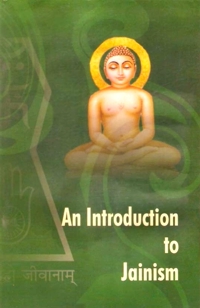Karmavāda
Subtle particles of matter, belonging to Karma-vargaṇā capable of being transformed into different varities of karma according to the nature of activities, are called karma.
There are eight types of karma:
1.
Jñānāvaraṇīya karma
knowledge-veiling karma It veils our knowledge.
2.
Darśanāvaraṇīya karma
intuition-veiling karma It veils our intuition (that is the apprehension of the generic atribute in the vary first instant of its perception).
3.
Vedanīya karma
feeling-producing karma It causes the feelings of pleasure and pain.
4.
Mohanīya karma
deluding karma It deludes the soul by distorting its faculty of enlightened faith and right conduct.
5.
Āyuṣya karma
lifespan-determining karma It determines the soul to have a fixed term of life in a particular realm of its worldly existence.
6.
Nāma karma
body determining karma It causes the attainment of different material objects related with the body in the four realms of living beings (viz. hellish, animal, human, celestial)
7.
Gotra karma
status-determining karma Due to this karma, one comes to possess high or low status in society.
8.
Antarāya karma
obstructing karma It causes obstruction in operation of the inherent powers of the soul.
- Knowledge-veiling karma
is like a strip on the eyes. As the strip obstructs in seeing, in the same way this karma obstructs in knowing.
- Intuition-veiling karma
is like a personal attendant attached to the king. As the personal attendant prevents the visitors wishing to see the king, so also this karma does not allow the soul to have the intuition i.e., the perception of the generic attributes.
- Feeling-determining karma
is compared with a sword with its edge smeared with honey. If one licks the sword, he will be delighted with the taste of the honey but at the same time his tongue will be slashed. Sātavedanīya karma is like the joyful experience of tasting honey. Asātavedanīya karma is like the painful experience of slashing of the tongue.
- Deluding karma
is like drinking alcohol. A person consuming alcohol loses his/her sanity, in the same way due to rise of deluding karma, a person has.a perverted belief of Truth, and his conduct is vitiated.
- Life-span-determining karma
determines the longevity of the embodiment of soul in a particular life. It is compared with shackles. As a man fettered with shackles is not able to free himself without breaking them, in the same way without enjoying the fruits of the āyuṣyakarma, a man cannot transmigrate from one life to another life and without annihilating the āyuṣyakarma, one cannot attain salvation.
- Body-determining karma
is like a painter. As the painter paints different kinds of pictures, in the same way due to the rise of it, one gets different kinds of physical features related with the body etc
. - Status-determining karma
is like a potter. The potter makes pitchers of various sizes, in the same, way due to rise of it, a person gets high or low status in the society.
- Obstructing karma
is like a store-manager of the king. Even after getting the permission of the king, a person cannot obtain a thing till it is supplied by the store-manager, in the same way on account of the rise of this karma, obstruction is created in getting the objects.
The Jain doctrine of karma has dealt with the nature and process of karma elaborately.
In brief we may say that there are two types of karma:
- Nikācita
The karma which will definitely come into rise and gives its fruition without any change. In context of nikācita karma, it can be said that the law of such karma is definitely 'destined' and hence, there is no other way to get rid of it except to undergo its good/evil consequences.
- Non-nikācita or Dalika
Such type of karma are amenable to change through the puruṣārtha of the soul, which means self-exertion in the form of penance etc.. Hence, it is possible to get rid of karma through the kṣayopaśama (elimination-cum-subsidence), upaśama (subsidence) and kṣaya (elimination), which are the result of self-restraint and penance. The changes in the status of karma may be in the form of udīraṇā (pre-mature rise), saṃkramaṇa (transformation of the prakṛti (nature)), udvartanā (augmentation of the sthiti (duration)) and anubhāga (intensity) of karma), apavartanā (diminishing the stithi and anubhāga) etc.
No doubt, karma is a very powerful factor affecting the consciousness; yet it is not whole and sole. As a matter of fact there are other factors such as kāla (time), svabhāva (nature), puruṣārtha (self-exertion) and niyati (universal laws) which have their own effects on the destiny of soul. All of them have a cummulative effect in deciding the future of the soul.
 Sadhvi Vishrut Vibha
Sadhvi Vishrut Vibha

